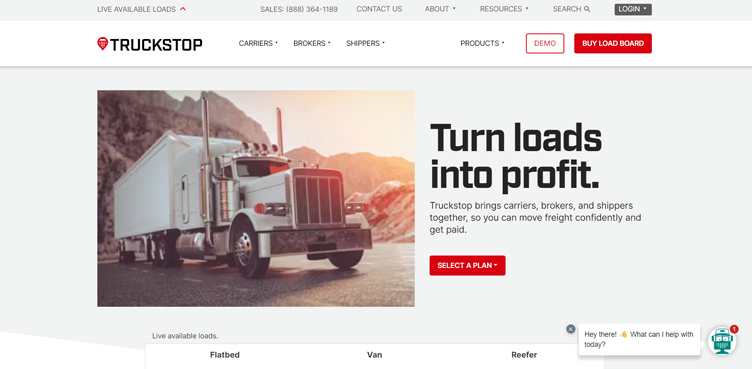Table of Contents
Introduction
As a freight dispatcher, you play a crucial role in the transportation industry. Your responsibilities involve coordinating and overseeing the movement of goods, ensuring it reaches its destinations efficiently and on time.
You analyze shipping needs, matching carriers with appropriate freight, considering factors like size, weight, and destination. You’re the linchpin between shippers and carriers, communicating essential details and schedules. Your expertise in logistics software helps you track shipments, manage routes, and troubleshoot any unforeseen issues.
Additionally, you negotiate rates and contracts, always aiming to optimize cost-effectiveness for both parties involved. The field continually evolves with technological advancements, demanding adaptability and quick decision-making from you.
You need to be detail-oriented and possess excellent communication skills because it is vital in this role, ensuring seamless freight movement. Your role significantly contributes to the smooth functioning of supply chains globally, making you an indispensable asset in the transportation sector.
What is a Freight Dispatcher?
- Coordinating Cargo Movement
- Liaison Between Parties
- Managing Shipping Logistics
- Utilizing Logistics Software
- Negotiating Rates Effectively
- Ensuring Timely Deliveries
- Troubleshooting Logistical Issues
- Critical Supply Chain Role
Recap
1. Coordinating Cargo Movement
A freight dispatcher coordinates cargo movement by orchestrating the transfer of goods from point A to point B. You ensure seamless transitions between various transportation modes—trucks, trains, ships, or planes—to get product(s) to where it needs to be.
You oversee scheduling, making sure that trucks arrive promptly for loading and departure. Additionally, you play a pivotal role in optimizing routes, considering factors like traffic, weather, and distance to guarantee efficient deliveries. You liaise with drivers, providing necessary information and support throughout the journey.
Your attention to detail ensures that the right goods are loaded onto the correct vehicles, avoiding errors or delays. Moreover, you continuously monitor shipment progress, ready to address any unexpected hiccups along the way, ensuring a smooth flow of goods across the supply chain. Your coordination skills are vital for maintaining a well-functioning transportation network across the United States.
2. Liaison Between Parties
As a freight dispatcher, your liaison between parties involves serving as the vital link connecting different entities within the transportation process. You facilitate effective communication between shippers, carriers, and receivers.
Your role requires relaying crucial information accurately and promptly, ensuring everyone involved stays informed about shipment statuses, schedules, and any potential issues. You act as a mediator, resolving conflicts and addressing concerns that arise during transportation, maintaining a smooth workflow.
Furthermore, you play a pivotal role in negotiating terms and agreements between parties, ensuring mutual satisfaction and understanding. Your ability to comprehend and convey specific requirements from shippers to carriers, and vice versa, contributes significantly to the successful movement of freight.
3. Managing Shipping Logistics
Another pivotal role of a freight dispatcher is managing shipping logistics. You oversee the intricate details of transporting goods, and you play a critical role in this process. You’re responsible for arranging the most efficient and cost-effective routes for freight.
You ensure that shipments comply with regulations, considering factors like weight limits, cargo type, and necessary permits. Additionally, you organize documentation, making sure all required paperwork is accurate and complete to facilitate smooth customs clearance and legal compliance.
Your attention to detail is essential in scheduling pickups and drop-offs, optimizing timing for seamless deliveries. Moreover, you handle the allocation of resources, such as trucks or containers, coordinating its availability to match shipping demands.
4. Utilizing Logistics Software
Utilizing logistics software as a freight dispatcher empowers you to streamline and enhance the entire freight management process. You rely on these sophisticated tools to efficiently track shipments, providing real-time updates on its whereabouts.
You use the software’s analytical capabilities to optimize routes, considering factors like traffic patterns and weather conditions, ensuring smoother deliveries. Additionally, these tools help you manage inventory levels, ensuring stock availability while minimizing excess, thus improving cost-effectiveness.
You need this technology to generate reports and analyze data, enabling informed decision-making and proactive adjustments to transportation strategies. Moreover, these software solutions often integrate communication platforms, facilitating seamless interaction among all stakeholders involved in the transportation process.
When you harness the power of logistics software, you significantly enhance your ability to manage and oversee the complexities of freight dispatching with precision and efficiency.
5. Negotiating Rates Effectively
Negotiating rates effectively is an essential skill you should have as a freight dispatcher. You’re tasked with securing the best possible pricing for shipping services. You analyze various factors like shipment size, destination, and carrier capabilities to determine fair rates.
Your negotiation skills come into play as you communicate with carriers, aiming to strike agreements that align with both cost-efficiency and service quality. You leverage market insights and industry trends to advocate for competitive rates, ensuring a balance between value and cost.
Moreover, you establish long-term relationships with carriers, fostering partnerships built on mutual benefit and trust. Your ability to negotiate effectively not only impacts the bottom line but also ensures reliable service standards for shipping goods. It’s a crucial aspect that contributes significantly to the success of freight dispatching operations.
6. Ensuring Timely Deliveries
Ensuring timely deliveries is at the heart of your role as a freight dispatcher. You plan schedules and coordinate shipments, ensuring it reaches its destinations promptly. You meticulously analyze routes, considering factors like traffic patterns and delivery deadlines, to optimize the chances of on-time arrivals.
Your constant monitoring of shipment progress allows you to proactively address any potential delays or issues that may arise along the way. Additionally, you collaborate closely with carriers and drivers, providing crucial information and support to ensure efficient delivery execution.
By prioritizing punctuality, you contribute to maintaining the reliability of supply chains. Your dedication to timeliness ensures that goods reach its intended recipients when needed, fostering satisfaction and trust among stakeholders involved in the freight transportation process.
7. Troubleshooting Logistical Issues
Troubleshooting logistical issues requires your adept problem-solving skills to keep the freight moving smoothly. You’re the go-to person when unexpected hiccups arise during transportation. You identify and address issues promptly, whether it’s a delay in transit, a change in delivery requirements, or unforeseen roadblocks affecting the route.
Your ability to quickly assess situations and find effective solutions is crucial in minimizing disruptions. You collaborate with carriers and shippers to navigate through these challenges, ensuring minimal impact on delivery schedules.
Moreover, you proactively anticipate potential problems, allowing you to implement preventive measures to mitigate risks along the way. By adeptly troubleshooting logistical issues, you maintain the flow of goods across the state, ensuring that any hurdles encountered are swiftly resolved.
>>>GET SMARTER: Freight Finder Loadboard Review
8. Critical Supply Chain Role
Being a critical role in the supply chain, you, as a freight dispatcher, are the linchpin ensuring goods move seamlessly across the United States. You are the mastermind coordinating the intricate operations of transportation, connecting shippers and carriers to ensure everything stays on track.
Your meticulous planning and coordination skills enable the smooth flow of goods from production to delivery. Without your expertise, the supply chain might face disruptions, impacting businesses and consumers alike. You’re responsible for maintaining efficiency, reliability, and cost-effectiveness throughout the transportation process.
Your role isn’t just about moving freight; it’s about ensuring the wheels of commerce keep turning. Your contributions ensure that products reach its destinations, supporting industries and livelihoods across the nation. In essence, you’re the backbone of a well-functioning supply chain, a role that’s indispensable for the functioning of businesses and the economy.
Recap
A freight dispatcher manages and coordinates the movement of goods. You connect shippers and carriers, ensuring efficient transportation operations. Your role involves optimizing routes, troubleshooting issues, and ensuring timely deliveries, vital for a well-functioning supply chain across the United States.



















